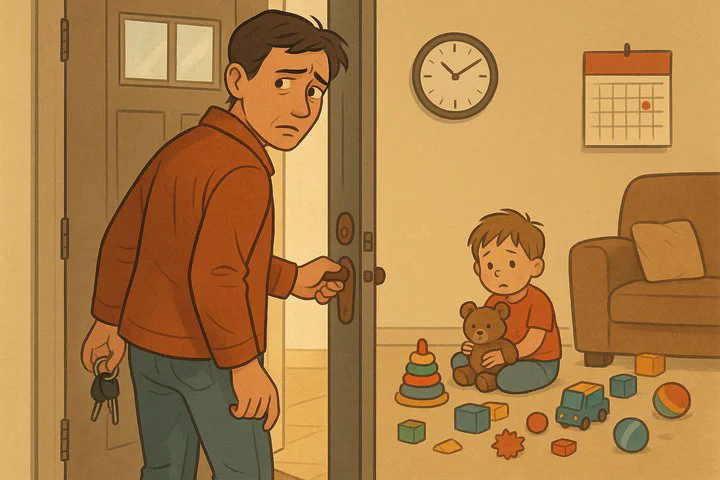Illinois Law on Leaving Children Home Alone Under 14

Illinois Law on Leaving Children Home Alone Under 14
Being a parent often feels like a juggling act. Work, school, errands—something always needs your attention. If you live in Illinois, you also have to think about whether your child is old enough to stay home alone. This article breaks down the Illinois law on leaving children home alone under 14, the risks you could face, and where to find help when life gets complicated.
Understanding Illinois Law on Child Supervision
If you run to the store while your 12-year-old stays home, you could be breaking the Illinois law on leaving children home alone under 14. Illinois is one of the strictest states in the nation. The rule comes from the Illinois Abused and Neglected Child Reporting Act, which says it may be illegal to leave children home alone when they’re under the age of 14 without proper supervision.
Why 14? Angela Perez, one of several family law attorneys licensed in Illinois, explains, “Kids younger than 14 may know how to make a snack, but they can freeze during an emergency.” Lawmakers set the age to keep children safe before they face those tough moments alone.
If you break the Illinois law, you might face serious consequences. Parents can be charged with neglect, pay fines, or even lose custody for a time. Understanding the rule now helps you make safer choices later. But what exactly happens if you do leave a child home alone?
Potential Consequences of Leaving Children Home Alone
Teachers, doctors, and neighbors are “mandated reporters.” If they believe a child is unsafe, they must call the Department of Children and Family Services (DCFS). Under the Illinois law on leaving children home alone under 14, one phone call can bring a DCFS worker to your door the same day.
Because it is illegal to leave children home alone when they’re under the age of 14, DCFS can file neglect charges. Police may add a misdemeanor or even a felony if the child faced real danger. Courts can order fines, parenting classes, or short-term custody changes. A DCFS record can also affect future jobs, custody cases, and housing options.
Real-life story: One Illinois mom thought her 13-year-old could watch the younger kids so she could work. The school learned the older child skipped class, and the mom soon discovered that having a child stay home from school to watch younger siblings is considered abuse. Her case lasted months and cost thousands in legal fees.
A Note From Gina
In my 15 years as a family law attorney, I once helped a dad who left his 12-year-old home for just an hour while he picked up overtime pay. A neighbor called DCFS, and the dad faced neglect charges. We showed the court he had arranged check-ins by phone and left clear emergency numbers. He still had to attend parenting classes, but he kept custody and learned safer options for the future. Stories like his remind me how quickly a normal day can turn into a legal battle.
Legal and Emotional Support for Parents
Life doesn’t stop just because the law is strict. You might be unable to leave your hospitalized child and have no sitter for a younger sibling at home. When emergencies hit, follow these steps:
- Talk to a lawyer right away. Many family law attorneys licensed in Illinois offer free phone or video consultations. They can explain your options, such as temporary guardianship papers or emergency child-care programs.
- Build a safety-net list. Include trusted neighbors, teen babysitters, after-school programs, and flexible coworkers. Post emergency numbers by the phone and check in often.
- Find emotional backup. Local YMCAs, park districts, and faith centers often run support groups. Online spaces like r/SingleMoms, r/FamilyLaw, and r/BlendedFamilies let you share worries and get advice. Talking with parents who survived DCFS investigations can lower stress and guide your next move.
- Keep records. Write down every call, text, or plan you make about child care. Good notes can protect you if questions arise later.
When you hear that having a child stay home from school to watch younger siblings is considered abuse, it can feel scary and isolating. Remember, many parents have faced the same fears and found help.
Moving Forward Together
Parenting doesn’t come with an easy map, but you don’t have to walk alone. The Illinois law on leaving children home alone under 14 may feel strict, yet knowing the rules—and your resources—gives you power. Share your experiences in our Family Guide Compass community, reach out for support, and help another parent who might be struggling today.
Need more guidance? Comment below, join one of our recommended support groups, or schedule a consult with a trusted attorney. Your voice and your story can make a difference—for your family and for others walking the same path.